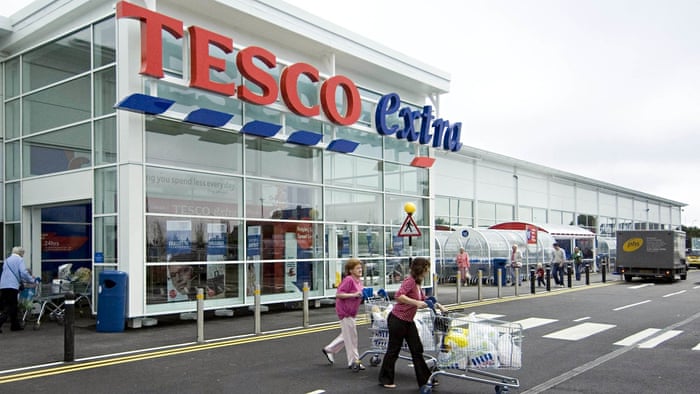“There are two types of chancellor,” Gordon Brown used to joke. “Those who fail and those who get out in time.” Tesco’s former chief executive,
Terry Leahy, now enjoying a lucrative career as a feted business guru, got out in time. The irony is that many of the problems now bringing the retail giant low are a legacy of the strategic decisions he made.
The latest blow to the company is the
extraordinary overestimate of expected half-yearly profits – amounting to a quarter of what was expected for the period – that has seen Tesco lose about a tenth of its value, massive in City terms. It’s an unwelcome greeting for the new chief executive,
Dave Lewis, who has only just taken over from Leahy’s successor, Philip Clarke. The latter left after failing to resolve the problems he inherited.
What went wrong at Britain’s biggest and most bullish retailer? The answer is no single thing, except perhaps what happens when the mystique of a seemingly impregnable empire evaporates. For years, anyone who had dealings with
Tescowould come away with respect for the apparent clinical efficiency of its business model. It did the same things – in terms of treatment of suppliers, playing the planning system and in the impact it had on local economies – as the other supermarkets, but it played the game harder.
Successive
reports from the Competition Commission found the company acting against the public interest in a sector that was too concentrated and had too much power to be good for a healthy retail ecosystem. But Tesco and the other supermarkets got away with it again and again, partly because of a supine regulator and partly due to sheer chutzpah. Tesco’s bristling self-confidence carried governments, regulators, investors and, for a time, the public along with it. When Tesco was taking about £1 in every £8 that British people spent shopping, Leahy once quipped that this left another £7 for the supermarket to go for. The bravado worked. Early in his term of office, Tony Blair opined that the supermarkets had their suppliers in an “armlock”, but Leahy was still given a knighthood.
Then overconfidence led to overreach. Seeing limits to its UK expansion, Tesco began spreading overseas. But as its initially confident adventure in the US foundered, so its ambitions began to recede in China and Japan too. Tesco had been the company that could do no wrong; now investors began to question whether it knew what it was doing.
The supermarket increasingly found itself in a no man’s land between the deep cost-cutters such as Aldi and Lidl and the quality brands such as Waitrose, leaving it with a weaker, less distinctive offer, while also fighting off its near rivals Sainsbury, Asda and Morrisons.
But it was worse than that. Tesco invested heavily in large edge-of-town and out-of-town stores, which were hit by the rise of internet shopping. The supermarket tried to respond by making a trip to Tesco Extra a family outing. Yoga classes, child-friendly restaurants and independent-style coffee chains were brought in to make the old uncle look groovy. But now, instead of making the weather, in business terms it was chasing patches of sun that kept receding.
The public was falling out of love with the weekly mega-shop and there was a growing awareness of the impact of big supermarkets on local economies. Unlike smaller independent and locally owned stores, supermarkets suck more spending out of an area and have a negative overall effect on jobs in the retail sector. “Clone towns” dominated by chain stores created a backlash. This is reflected both in the explosion of interest in community food-growing initiatives, craft bakers and brewers, and in the rise of so-called “transition towns” that aim to build sustainable communities.
Tesco, though wounded, remains by far the UK’s biggest retailer. But if, as a result of its travails, it is reduced in size, the market opens up to some degree and we learn the lessons of its imperial overreach, that would be good for Britain. A resilient economy needs diversity. Too much power in the hands of too few retailers is bad for everyone – farmers, producers, consumers and the businesses themselves.
When big goes bad, it hurts far more people. That’s something we learned from the banking crisis. Mistakes get magnified and the blinkered, macho pursuit of growth and profits above all else distorts the business and the economy, and can end up cannibalising the very ecosystem on which it depends. Instead of looking to return the Tesco swagger, Lewis should reflect on how empires often make their worst mistakes as they scrabble to avoid collapse. The worst could be yet to come.














